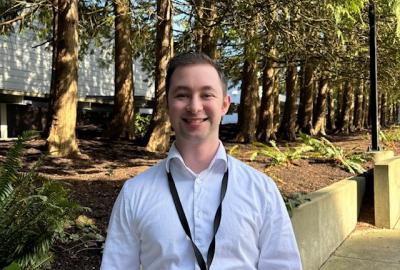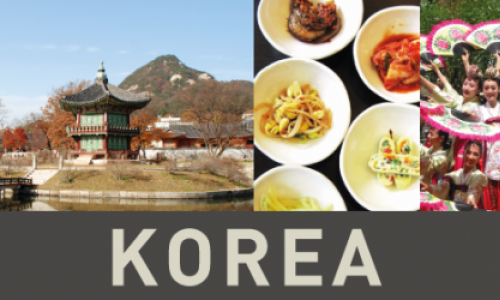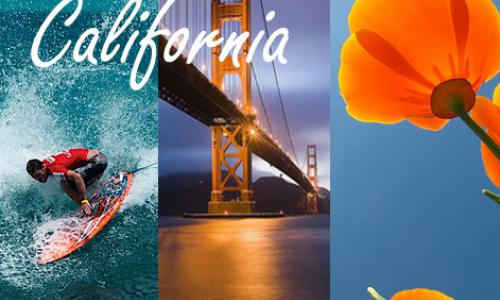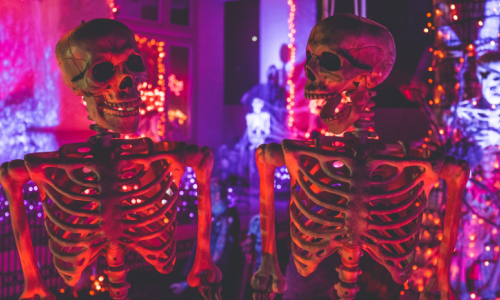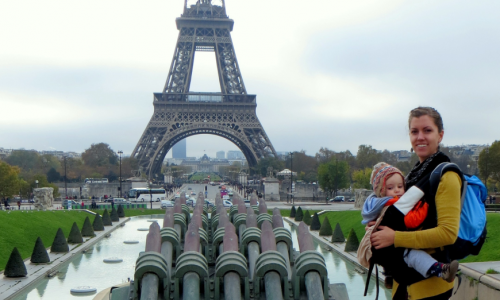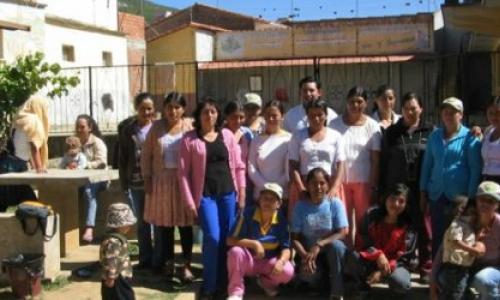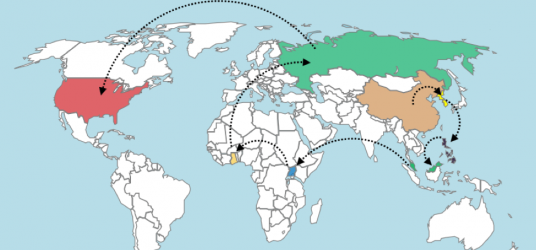
“If you ask anyone in or outside Canada what makes that country different from other nations, it doesn’t usually take long for hockey to emerge as something that seems characteristically Canadian”. Paul W. Martin
In Canada, hockey is not only about scoring goals, it is also about connecting people, enjoying evenings out with family and just having fun. Even Canadians who don’t know the rules go to hockey games. You can feel hockey in the air here.
In Canada people are passionate about hockey but people from all over the world have their own customs and tradition that unite them. Each year, thousands of students from foreign countries come to SFU, bringing something special with them. As an international student, I wondered what makes SFU students from different countries united so I decided to “travel the world”, to learn about their customs and traditions. Join me on my trip!
China
Seat belts on, our first stop is China! Tianchang Xu from the Beedie School of Business was born and raised in Guangzhou, China, where every year he had a chance to enjoy the Dragon Boat Festival. He says, "it is an amazing event to see and perfect way to experience Chinese culture.
The Dragon Boat Festival is held in commemoration of Qu Yuan, a great patriot and poet of China. Thousands of years ago when China was not united, Qu Yuan, the minister of nation Chu, suggested the King form an alliance with nation Qi to fight against nation Qin. However, not only was his idea rejected but he was also deported from the capital city. After hearing that Qin had conquered his country, Qu Yuan wrote his last poem with sadness and jumped into the river to end his life. People in Chu rushed to the riverside to mourn their loved minister. To prevent his body from being eaten by fish, the fishermen wrapped glutinous rice with leaves and threw them into the river. Today, people eat Zongzi (the glutinous rice wrapped with leaves) and compete in dragon boat racing on this day to mourn Qu Yuan. This event is not only about competition, but about uniting the whole nation together and educating people of all ages to love China and appreciate Chinese culture."
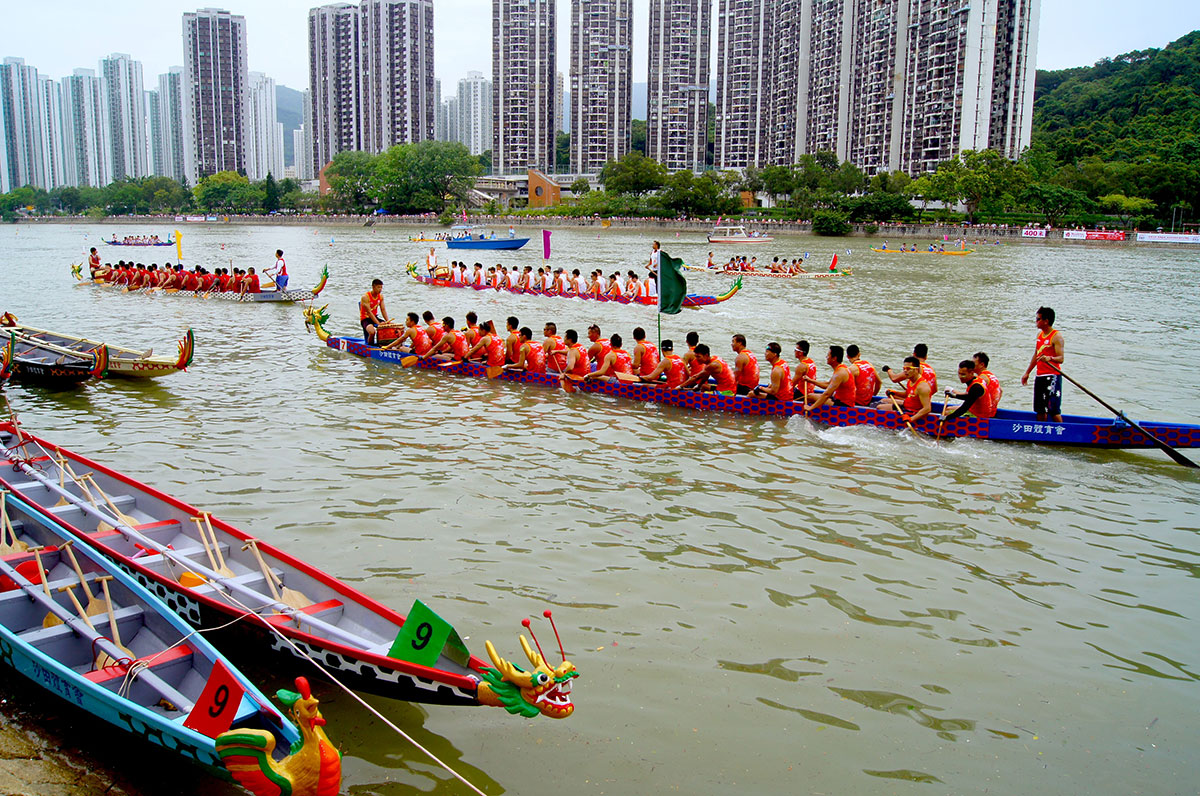
Korea
Leaving the Dragon Boat Festival we cross the Yellow Sea and land in Korea to visit Jisoo Amy Lee and her family, SFU exchange student from the faculty of Humanities. Let’s go back to her first birthday - “dol-janchi (돌-잔치)”:
"In Korea, a child’s first birthday is a huge event. We call the birthday party “dol-janchi(돌-잔치)”, “dol” meaning the first birthday and “janchi” meaning festival in Korean. People might think that it is just a birthday party but in fact it is the time the baby’s future is determined. Every toddler is put in front of several objects and chooses his favorite. We call it “dol-jaabi(돌-잡이)”, “dol” meaning the first birthday and “jaabi” meaning to catch.
Each object has its own symbolic meaning regarding the birthday baby’s future: Thread for long life; a notebook, pencil or pen represents academic success; Money symbolizes wealth; a ball for an athletic career; and a stethoscope for becoming a doctor. It’s a blessing for a bright future. My parents said: I grabbed a notebook and a pencil for my “dol-janchi”! I guess I need to wait a bit more to see if it works out!"
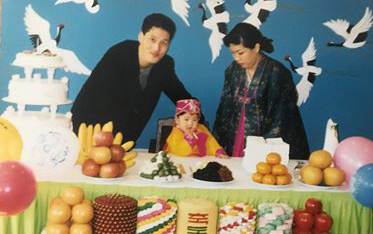
Philippines
Hoping that Jisoo will succeed with her studying we are heading towards the Philippines. The country which is made up of over 7000 islands, where Jack Deverar would like to sing us a karaoke song:
"In the Philippines each region has its own distinct traditions, cultures and languages which makes the country extremely unique. However, what can be considered a national pastime to the Filipino people is karaoke. It is an understatement to say that Filipino’s love karaoke. Almost every Filipino household has a Magic Sing karaoke system. At a Filipino party, karaoke is guaranteed. In fact, many can remember a time when their parents would force them to perform for family and friends. As for why karaoke is so popular? Singing has always been a part of Filipino pop culture, with singing being the focus of many reality shows. Compared to other activities, karaoke is cheap and easy, allowing people of all different backgrounds to enjoy themselves. The relationship between Filipinos and karaoke is unique, but no one can deny that it special."
Malaysia
After being under the bright Philippine sun our journey continues and we are going to another hot country Malaysia, where Jeff Yap, PhD student in the department of Biological Sciences at SFU, does sports almost every day:
"Like Canada and pretty much everywhere else, sport is what unites people in my country. The national sport of Malaysia is badminton, so major badminton competitions like the biannual Thomas Cup and Uber Cup are huge in Malaysia. Most Malaysians, regardless of ethnicity, political view, and religion would gather at hawker stalls to watch live matches on TV, even when it's 2am in the morning! And because it's the national sports, almost everyone knows how to play. The best memory I have is watching the men's doubles final of the 2006 Asian Games with my family and friends. We were the underdog but all of us were cheering for our team. I remember when Malaysia finally won the match all of us were super ecstatic and we could hear even our neighbours cheering and celebrating. Being a multicultural/multiracial country, there is bound to be a bit of racial tension and conflict between different ethnicities (some regions more than others). But whenever there is an important badminton tournament going on, people seem to put all conflict aside and get together to cheer for our nation and team. This is why I think sports in general is very powerful. It can unite people easily."
Uganda
Now, we are going to a super-hot part of Africa, Uganda, where Joseph M. Ssendikaddiwa, SFU student Faculty of Health Science, wants to tell us about soccer and traditional wrestling:
"These two sport are played any time of the day, anywhere and by anyone in Uganda. The matches either wrestling or soccer, bring crowds both in urban and rural centers. People of all ages come with tree branches, leaves, banana leaves anything that can get the cheering going. The cheering squads come in with motorcycles, honking as loud as they can, with kids yelling at the top of their voices with mothers carrying babies on their backs. It is not surprising some times to find crowds that have no idea about what the rules of the game are but supporting to the best of their abilities and showing great enthusiasm for their preferred soccer team or wrestling men. The soccer tradition has been greatly inspired by the European, Premier League, as well as Bundesliga and the Champions League. The most popular soccer clubs are; Chelsea, FC Barcelona, Manchester United, Bayern Munich, Arsenal and Liverpool."
Ghana
Leaving Uganda and crossing Africa, we are landing in Ghana to visit Denise Somuah - Asamoah, First Year Biomedical Physiology Major at SFU.
"From the streets of rural Ghanaian villages to international leagues, you will find Ghanaians actively engaged in the game of football (soccer). Ghana is known worldwide for its spectacular performance in tournaments such as the FIFA World Cup and the Africa Cup of Nations (AFCON). Growing up in Ghana, there was no way I could have avoided the football world. In school, I participated in football games as part of physical education and recreation. On Sunday afternoons, it was not unusual to walk down the street and see men and women alike watching football games in local restaurants while eating fufu and soup (a popular local meal). I fondly remember acquiring a plethora of souvenirs during the 2010 World Cup games as my family, friends and the whole of Ghana united to support our team in South Africa. It hardly mattered if one was a football fan or not, everyone showed their patriotism by putting the Ghana flag on the rear decks of their cars, wearing Ghana T-shirts and headbands during games, and even painting their bodies bright red, yellow and green in support. This is easily one of the memories I can point to as a moment when I felt truly Ghanaian - the entire country was bustling with excitement and as an 11-year old, I felt a great sense of being part of something special.
Despite this, I found it quite surprising that so many Canadians and people from other parts of the world would immediately mention the Ghana football team when I introduced myself and told them I was Ghanaian. I always feel a sense of pride when I think about the fact that something I enjoyed so much as a child - the unity and togetherness that football brings to Ghanaians- is recognized all over the world. Coming to Canada as an International student, I quickly learned that hockey is the football of Canada (among other sports). Hence, when the opportunity came for me to attend my first hockey game in Canada, I was very excited. It was truly amazing to see entire families, grandparent to grandchild, wearing their teams’ jerseys and cheering their teams on and spending time together, much like my own experience with football in Ghana. Reflecting on my time at the hockey game and on my childhood in Ghana, I am amazed at the power that sports has to unite people despite differences that would separate them in their daily lives."
Russia
From Ghana we are heading towards the biggest country in the world – Russia -- where Dasha, 1st year Beedie Business Student, is celebrating New Years in the - 36 Celsius degrees cold:
"New Year is one of the most important holidays for Russians. Every person is waiting for the 31st of December. Why? Because everyone can make a wish that day which might change a person’s life. Traditional salads are prepared, New Year’s trees are shining brightly, and the whole family dresses up. New Year’s dinner is held at 10 p.m. The most important part of the day is the President’s speech at 11:55 p.m. and making a wish after. When the president is done with his speech the Kremlin’s clock starts beating. It beats 12 times and the most critical about this 12 is that every person should write down his most desirable wish for the coming year on a piece of paper, then burn it and place the ashes in a glass of champagne. In order for someone’s wish to come true, the person should drink the glass before the 12th beat. I do it every year, and last time I wished for myself to go abroad for my post-secondary study. As you can see my wish came true, I’m in Canada in beautiful British Columbia studying in the best university of Simon Fraser. This New Year event is not only about celebrating the upcoming calendar year and making a wish, but it is about the whole country getting together, sharing great stories, eating traditional food and wishing the best to everyone."
United States of America
Flying from Russia to USA, where Trump is trying to change all legislations, Sam Lawson, first year Environmental Science student is celebrating Independence Day.
"As an American my favorite tradition is to celebrate the Fourth of July. This is when we became independent from the British empire. This day always consist of wearing some American flag clothing, watching a baseball game if you can find one and eating BBQ. In the evening we have a massive fireworks celebration. People usually buy their own and will have competitions against their neighbors to see who can make the coolest or biggest show. As a child it was always free to me so I would eat my hotdog or chicken and lay back on the grass field and watch the giant explosions in the sweltering heat."
After traveling all over the world it seems to me that all of these events are created for one purpose – to unite people and make them feel a sense of camaraderie and oneness. It is so interesting to see the different traditions people have and to try and understand them. Let’s be united, let’s relate to each other at SFU and appreciate other people’s customs.
Beyond the Blog
-
Are you an international student new to SFU or a current student interested in mentoring incoming international students? If so, check out SFU's Global Community Mentoship Program.
-
Connect with fellow international students at SFU's Global Student Centre.
-
Living on campus? Join SFU Residence's Engaged Global Citizenship Community.



